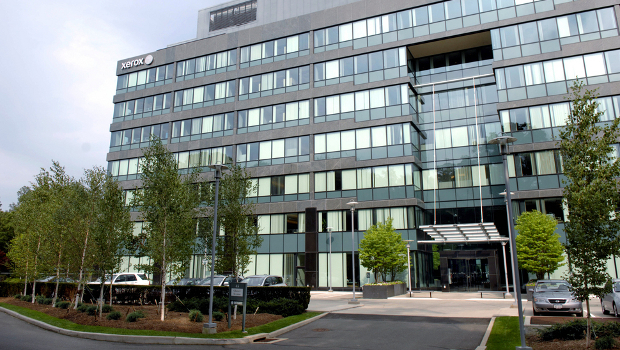Over 50 years ago, Xerox introduced photocopiers based on a dry process called xerography that largely did away with the requirement of carbon copies of documents. So popular was the concept and the technology that in many markets users didn’t ask for a photocopy but a ‘xerox’ of a document.
Meanwhile, researchers at Xerox’s Palo Alto Research Center developed technologies, such as Ethernet and the graphical user interface, that were the basis of many key subsequent technology developments.
Xerox, which over the years diversified into a business services and document management company, is now under pressure to reinvent itself again, shedding some of the new businesses that it acquired or grew into such as business process outsourcing and related services.
The company, with global headquarters in Norwalk, Connecticut, is planning to divide itself into two separate companies, one focused on its office automation hardware like printers and another on services, according to news reports. The spinoff will largely consist of Affiliated Computer Services, the business-outsourcing company that Xerox bought in 2010 for $6.4 billion, according to the New York Times, which quoted a person briefed on the decision.
The move is apparently the result of negotiations with investor Carl Icahn, who acquired a significant stake in Xerox last year and said he would talk to the company about its future. Under the proposed plan, Icahn will get three seats on the services company’s board, the Wall Street Journal reported.
Xerox is expected to announce the proposed split during its earnings call today. A company spokesman declined to comment on the reports. “We think this is a major move and will greatly enhance shareholder value,” Icahn told CNBC.
Familiar strategy
By this strategy, Xerox would be taking a leaf from the some of its peers like Hewlett-Packard, which split into an enterprise-focused company and another that sells printers and PCs. E-commerce company eBay also spun off last year its PayPal payments processing unit.
The split, however, represents a dramatic change from Xerox strategy, which saw its strength in a diverse portfolio, addressing different business needs. “We are changing the way the world shops, learns, parks, publishes, does banking, receives healthcare and more. By helping businesses and governments of all sizes solve challenges, we’re making the world work a little better every day,” CEO Ursula Burns said in May last year.
In line with this strategy, the company said in August last year it had signed a definitive agreement to acquire RSA Medical, a provider of health assessment and risk management for members interacting with health and life insurance companies. Midas+, a Xerox company focused on the healthcare market, also acquired Healthy Communities Institute, a Berkeley, California-based company that offered a software-as-a-service platform that centralises proprietary, healthcare and community data to help hospitals and other health organisations manage population health.
Xerox, however, had to make a mid-term change in its IT outsourcing business strategy. It decided in December 2014 to sell its ITO business to Atos for $1.05 billion, as this business had not acquired the scale to enable Xerox to offer its customers a differentiated offering. Under the deal, Atos would provide IT services to Xerox and its BPO clients, while the company focused on its BPO and document processing business.
Xerox, which was founded in 1906 in Rochester, New York, reported in October revenue of $4.3 billion in the third quarter of 2015, down 10% from the same period in the previous year. It had a loss of $34 million in the quarter compared to a profit of $266 million in the same quarter in the previous year, because of a charge on account of interrupted government healthcare projects. Burns said at the time that the board had decided to do a comprehensive review of “structural options for the company’s portfolio.”
IDG News Service








Subscribers 0
Fans 0
Followers 0
Followers